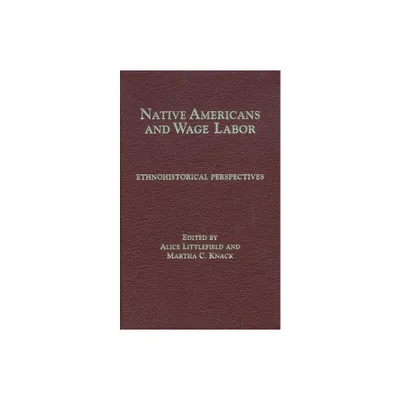Home
the Lives Objects: Native Americans, British Colonists, and Cultures of Labor Exchange Southeast
Loading Inventory...
Barnes and Noble
the Lives Objects: Native Americans, British Colonists, and Cultures of Labor Exchange Southeast
Current price: $99.00


Barnes and Noble
the Lives Objects: Native Americans, British Colonists, and Cultures of Labor Exchange Southeast
Current price: $99.00
Loading Inventory...
Size: Hardcover
*Product Information may vary - to confirm product availability, pricing, and additional information please contact Barnes and Noble
In
The Lives in Objects
, Jessica Yirush Stern presents a thoroughly researched and engaging study of the deerskin trade in the colonial Southeast, equally attentive to British American and Southeastern Indian cultures of production, distribution, and consumption. Stern upends the long-standing assertion that Native Americans were solely gift givers and the British were modern commercial capitalists. This traditional interpretation casts Native Americans as victims drawn into and made dependent on a transatlantic marketplace. Stern complicates that picture by showing how both the Southeastern Indian and British American actors mixed gift giving and commodity exchange in the deerskin trade, such that Southeastern Indians retained much greater agency as producers and consumers than the standard narrative allows. By tracking the debates about Indian trade regulation, Stern also reveals that the British were often not willing to embrace modern free market values. While she sheds new light on broader issues in native and colonial history, Stern also demonstrates that concepts of labor, commerce, and material culture were inextricably intertwined to present a fresh perspective on trade in the colonial Southeast.
The Lives in Objects
, Jessica Yirush Stern presents a thoroughly researched and engaging study of the deerskin trade in the colonial Southeast, equally attentive to British American and Southeastern Indian cultures of production, distribution, and consumption. Stern upends the long-standing assertion that Native Americans were solely gift givers and the British were modern commercial capitalists. This traditional interpretation casts Native Americans as victims drawn into and made dependent on a transatlantic marketplace. Stern complicates that picture by showing how both the Southeastern Indian and British American actors mixed gift giving and commodity exchange in the deerskin trade, such that Southeastern Indians retained much greater agency as producers and consumers than the standard narrative allows. By tracking the debates about Indian trade regulation, Stern also reveals that the British were often not willing to embrace modern free market values. While she sheds new light on broader issues in native and colonial history, Stern also demonstrates that concepts of labor, commerce, and material culture were inextricably intertwined to present a fresh perspective on trade in the colonial Southeast.


















